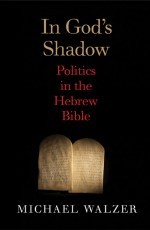
As on so many issues that divide left-wing and right-wing Christians, the Bible seems frustratingly pliable when it comes to the issue of property rights. Conservative Christians like to assert that the Bible takes private property for granted, that the Eighth Commandment demonstrates it to be a “divine institution” or a “sacred right,” and that the many examples of wealthy patriarchs prove not only private property, but large accumulations of it, have divine sanction. Those more inclined toward some kind of Christian socialism like to point out Jesus’s very harsh strictures on the accumulation of wealth and the assertion of private property rights, and the early Jerusalem community’s practice of “having all things in common.” As so often happens, we seem to be faced with something of an Old Testament/New Testament divide, in which the Old Testament bolsters a conservative agenda, and the New Testament a liberal one. Is the Bible thus divided against itself?

[The the second of three posts this week on Michael Walzer’s In God’s Shadow: Politics in the Hebrew Bible.] It is deeply satisfying to read a new book by Michael Walzer on the Hebrew bible. Certainly this is not Walzer’s first book on the Hebrew bible: Walzer’s earlier Exodus and Revolution already gives us a unique way to reimagine the revolutionary implications of the biblical text. With this new volume, Walzer’s writings on the bible continue to invigorate the way we can read this most ancient of texts. Michael Walzer’s In God’s Shadow sets a difficult task for itself. It reads the wide-ranging Hebrew bible to get a sense of how political institutions actually functioned in biblical times. This enterprise is more difficult than it sounds. Mining a work that consciously centers on historical and legalistic narrative for structural and procedural understandings about how political life actually works can be a counterintuitive project. It is a tribute to Walzer’s masterly sense of his craft and his nuanced readings of the biblical texts that he succeeds so well at his self-appointed task. Deliberately eschewing a philosophical or reductive (morally or otherwise) reading of the Hebrew bible, Walzer approaches these much-commented texts with another set of questions in mind: what role is left for politics in a world that, according to the bible at least, is governed by God?

That the resurrection is a beleaguered doctrine in North America and in Europe is hardly a new revelation. For all its technological wonders, modernity is uncomfortable with old-fashioned miracles. Pre-modern ways of talking about Jesus’ resurrection don’t translate easily for an audience that demands scientific corroboration and empirical evidence. As a result, Christianity has chastened and tamed this story in a number of ways.

[The the first of three posts this week on Michael Walzer’s “In God’s Shadow: Politics in the Hebrew Bible.”] Michael Walzer occupies a distinctive place in political interpretation. He is a distinguished political scientist who continues to have a significant investment in the Hebrew Bible. His writing thus permits a convergence of the agility of his Jewish perspective on the Bible and his engagement with contemporary questions of power. He has authored an important book on the Exodus narrative and the continuing influence of that narrative upon revolutionary thought and action. His paper, “The Prophets as Social Critics,” moreover, recognized the prophets of ancient Israel as serious social critics and analysts who exposited Israel’s “core values” of justice and righteousness and who were alert to oppressions that impeded social solidarity…
With conservative and evangelical ethicists falling dramatically off the anti-gay-marriage bandwagon at a remarkable pace, superstar theologian David Bentley Hart’s essay “Is, Ought, and Nature’s Laws” last month in First Things came like a spark on a dry pile of tinder. Challenging the optimism of many contemporary Catholic thinkers (and recently many evangelical thinkers as well) that natural law arguments can provide a convincing, broadly-appealing basis for opposition to gay marriage legislation, Hart provoked a tide of responses and counter-responses in the blogosphere, which continues even now. For at stake in Hart’s remarks were not merely how conservatives should and shouldn’t engage in gay marriage debates, but the nature of the public square and of natural law itself, the foundation upon which so much Christian political theory has been built over the centuries.
Rather than attempting to weigh in with yet another contribution to the wide-ranging debate, I will merely seek to provide here something of an annotated catalogue of the more significant blasts and counter-blasts
In this column, I want to engage in what Reynolds Price once referred to as “a serious way of wondering” about Exodus 20: 15-18—i.e., the moment at which the Israelites experience the divine self-revelation at the foot of Mount Sinai. Normally, this passage is understood as a theophanic event. To the extent that it involves the constitution of a nation or polity, it has usually been understood as a theocracy. Its intellectual expression (insofar as it addresses the issue of covenantal authority grounded in divine self-revelation) would therefore take the form of a political theology. To the extent that we read the above passage in this way, we have already rendered a decision—the essential significance of the passage would lie in the divine self-revelation. The fear which the Israelites experienced would amount simply and solely to a fear of God. Conversely, an acceptance of the commandments would amount to an acceptance of the political theology undergirding the theocracy.
